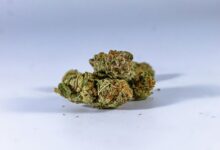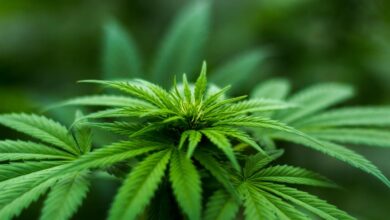How Long Does Cbd Stay in Your System

The duration that CBD remains in an individual's system is influenced by various factors. These include the dosage taken, individual metabolic rates, and frequency of use. Additionally, the method of consumption plays a critical role. Understanding these elements can provide clarity for those concerned about the implications of CBD use, especially regarding testing for its presence. What determines the exact timeline? Exploring these factors reveals more insights.
Understanding CBD Metabolism
Although the metabolism of cannabidiol (CBD) can vary among individuals, understanding its general process is crucial for determining how long it remains in the body.
CBD absorption rates influence how quickly it enters circulation, while its half-life indicates how long the compound stays active before being eliminated.
Generally, CBD's half-life ranges from 18 to 32 hours, affecting overall detection duration.
Factors Influencing CBD Detection Time
Several factors influence how long CBD remains detectable in an individual's system.
Dosage effects play a crucial role, as higher amounts may prolong detection times.
Additionally, individual variability, including metabolism, body composition, and frequency of use, significantly affects how the compound is processed.
These elements combine to create a unique detection window for each person, emphasizing the importance of understanding personal factors.
Different Methods of Consumption
Exploring various methods of CBD consumption reveals distinct differences in how the compound is absorbed and metabolized by the body.
Edible products, such as gummies or capsules, are processed through the digestive system, leading to slower onset but longer-lasting effects.
In contrast, vaporizer use allows for rapid absorption through the lungs, providing quicker relief but often requiring more frequent dosing.
Testing for CBD in the Body
How can one accurately determine the presence of CBD in the body?
CBD testing typically involves analyzing blood, urine, or saliva samples to detect CBD metabolites. These metabolites indicate prior use of CBD products.
While standard drug tests usually do not screen for CBD specifically, they may test for THC, which can appear alongside CBD in certain products, complicating results for users seeking freedom from drug testing concerns.
Conclusion
In conclusion, the duration CBD remains in the system is influenced by various factors, including metabolism, dosage, and consumption methods. While its half-life ranges from 18 to 32 hours, individual differences can extend its detectability beyond a few days. Understanding these dynamics is essential for users concerned about potential drug testing. Ultimately, the complexity of CBD metabolism underscores the importance of informed usage, allowing individuals to make educated decisions regarding their consumption and its implications.






